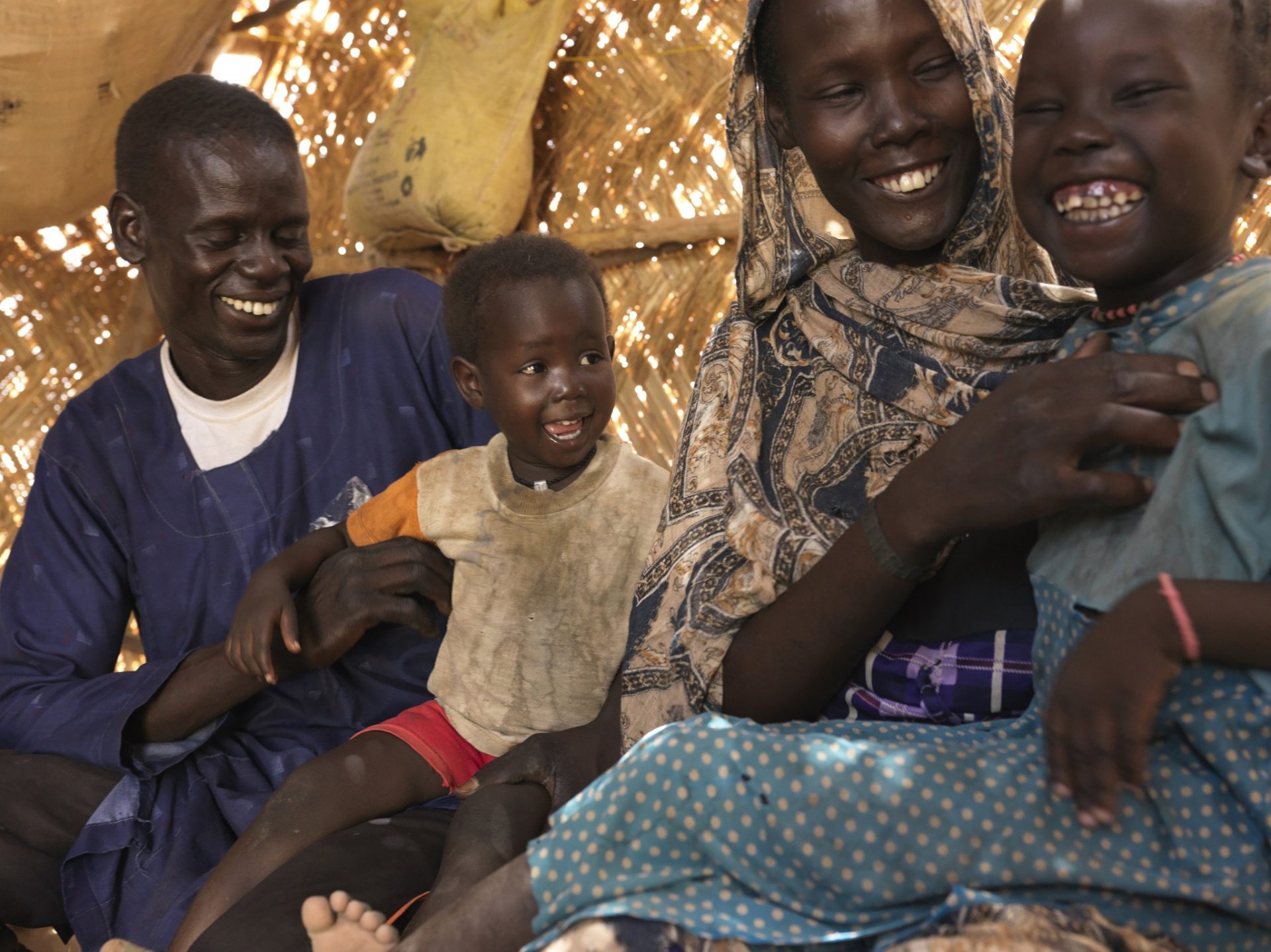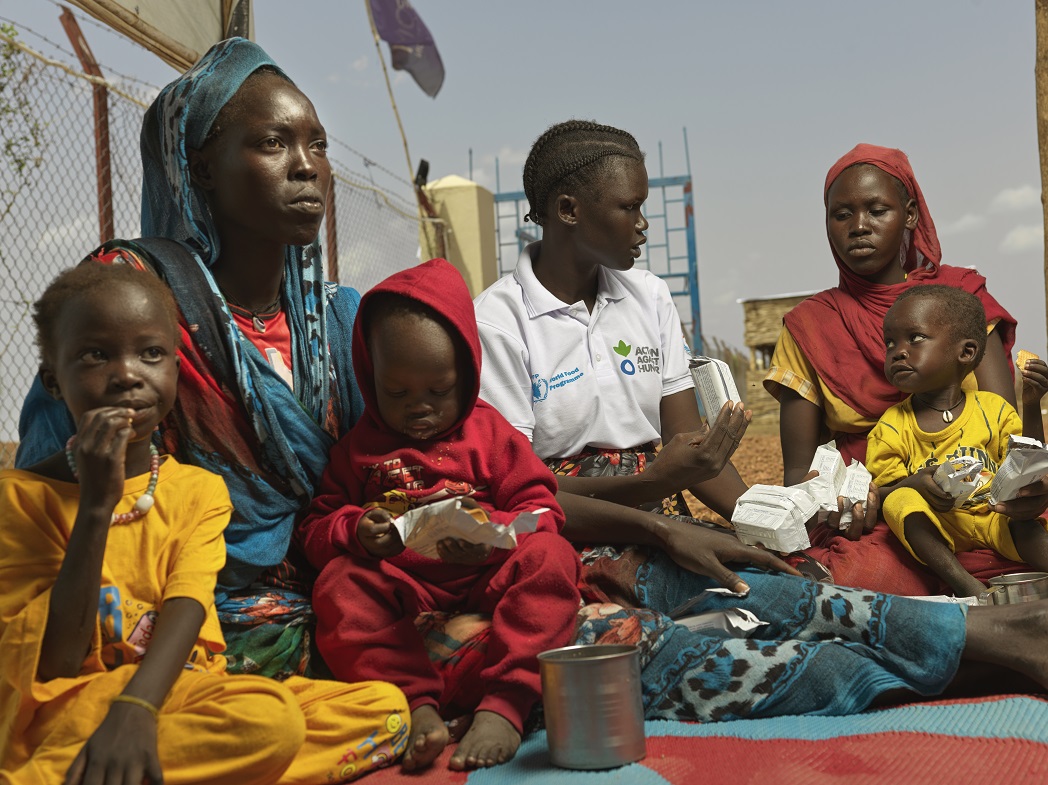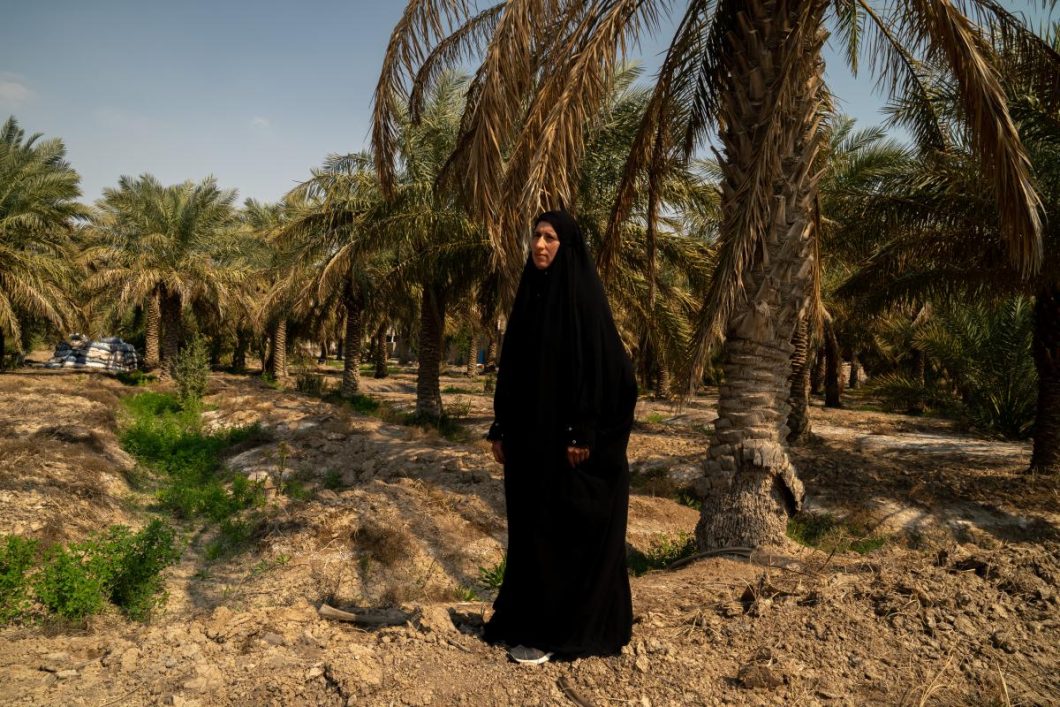Since the civil war started in April 2023, nearly 9 million people in Sudan have been displaced by violence.
With no choice but to flee their homes, they leave their belongings and jobs behind them, often becoming separated from their loved ones. Some people stay in Sudan, but millions more are forced into neighbouring countries and become refugees in places like Chad and South Sudan.
People like Nyibol and her family.
Forced to flee to survive
Until the day armed men attacked their village in Sudan, pregnant mother Nyibol lived happily with her husband and two daughters, farming groundnuts. But everything changed in that moment.
It was a targeted attack. The men, wielding knives and stabbing anyone in their way, set light to the villagers’ homes. Nyibol and her family ran for their lives.
But as Nyibol and her youngest daughter fled, they were separated from her husband and eldest daughter. She had no idea whether they had made it out alive.
Relief washed over Nyibol when she later learned her family had escaped to South Sudan.
“I was very excited! Even last night I could not sleep, I was laughing and very happy inside… I could not believe it when I received his phone call after we got separated.”
She set out on the gruelling journey to join them.
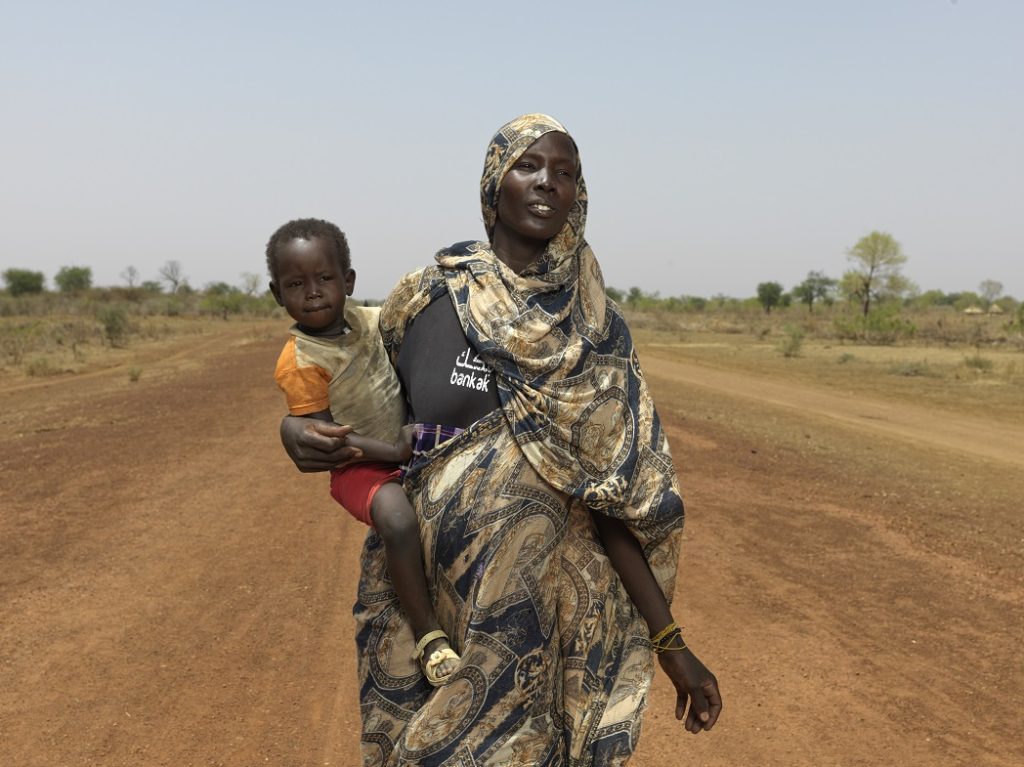
Nyibol, 27, is six months pregnant and arrived at the border with her youngest daughter.
After four long and exhausting days, she arrived at the Action Against Hunger border welcome centre. Nyibol and her daughter were given energy biscuits and screened for malnutrition.
Then came the moment they had been dreaming of. After more than a month apart, the family was finally reunited.
It’s a shocking, but familiar, tale.
Fearing for safety
Twelve-year-old Ackuon and her older sister Arekl, 15, fled to South Sudan with their grandfather, fearing for their safety.
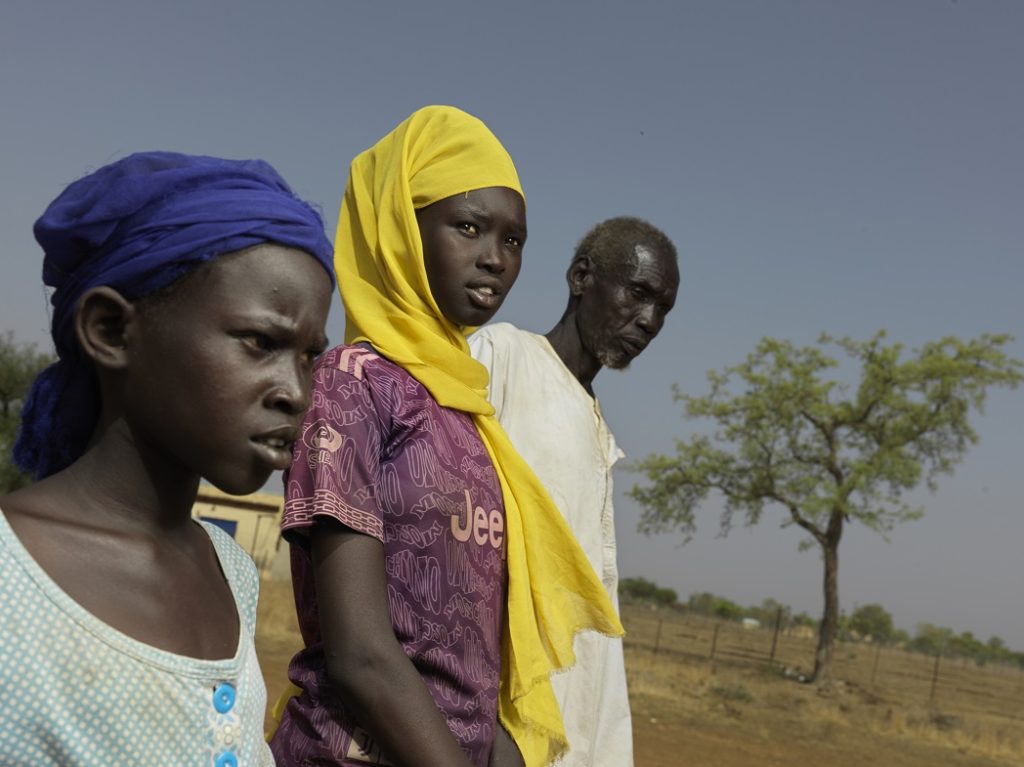
From left to right, Ackuon,12, Arek, 15, ( yellow scarf ) and grandfather Kerbino, 60, arrive from Sudan and await screening and emergency food rations from Action Against Hunger.
“We travelled to South Sudan to escape fighting in the capital Khartoum. My father decided it was time to escape the conflict. In Sudan when there is conflict, some criminals may drink alcohol and attack women and girls. I was worried about my life in Sudan.”

